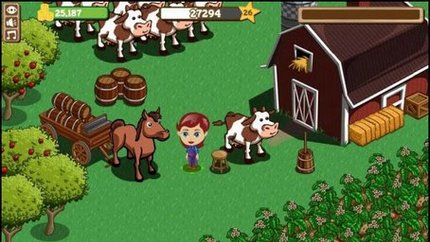Angry Birds dev turns down Zynga $2.25B buyout offer - Report
Rovio said to walk away from billion-dollar deal with FarmVille maker due to reputation of oppressive working conditions.
More so than any other game company, Zynga has capitalized on the ballooning popularity of casual online games, thanks to breakout successes like FarmVille and Mafia Wars. However, the New York Times reports the company's success has been fueled by harsh working conditions, and it may cost the studio in the long run.

Sourcing a handful of employees speaking under the condition of anonymity, the Times' Sunday edition said that CEO Mark Pincus solicited employee feedback last month, with the result being a spate of grievances against the company. These complaints ranged form long work hours to stressful deadlines to overbearing managers.
Over the summer, Angry Birds developer Rovio reportedly walked away from acquisition discussions valued at $2.25 billion in cash and stock, citing concerns over the company's culture. Those conditions were reportedly also a primary factor in PopCap turning down Zynga's $950 million cash bid. (EA successfully picked up PopCap for $750 million in cash and stock, with an additional $550 million in bonuses also on the table.)
The former Zynga employees also said that the company especially needs to fear brain drain as it approaches its oft-delayed initial public offering to be traded on Wall Street. Sources say Zynga's IPO, which analysts expect to come in at $15 billion to $20 billion, has been seized upon by recruitment agencies who hope to lure away top talent following the sale.
"I expect a lot of game and tech companies will begin recruiting Zynga's talent after their equity becomes liquid," EA human resources head Gabrielle Toledano told the Times. "Competitors will make the case that they offer much more compelling opportunities for creative people."
Further compounding the brain-drain dilemma, the Times reported earlier this month that a handful of senior employees were given the option to return a portion of unvested stock or be fired. The move reportedly came as the result of Zynga's IPO, with the company feeling that they had doled out too much stock during its startup window.
Got a news tip or want to contact us directly? Email news@gamespot.com
Join the conversation